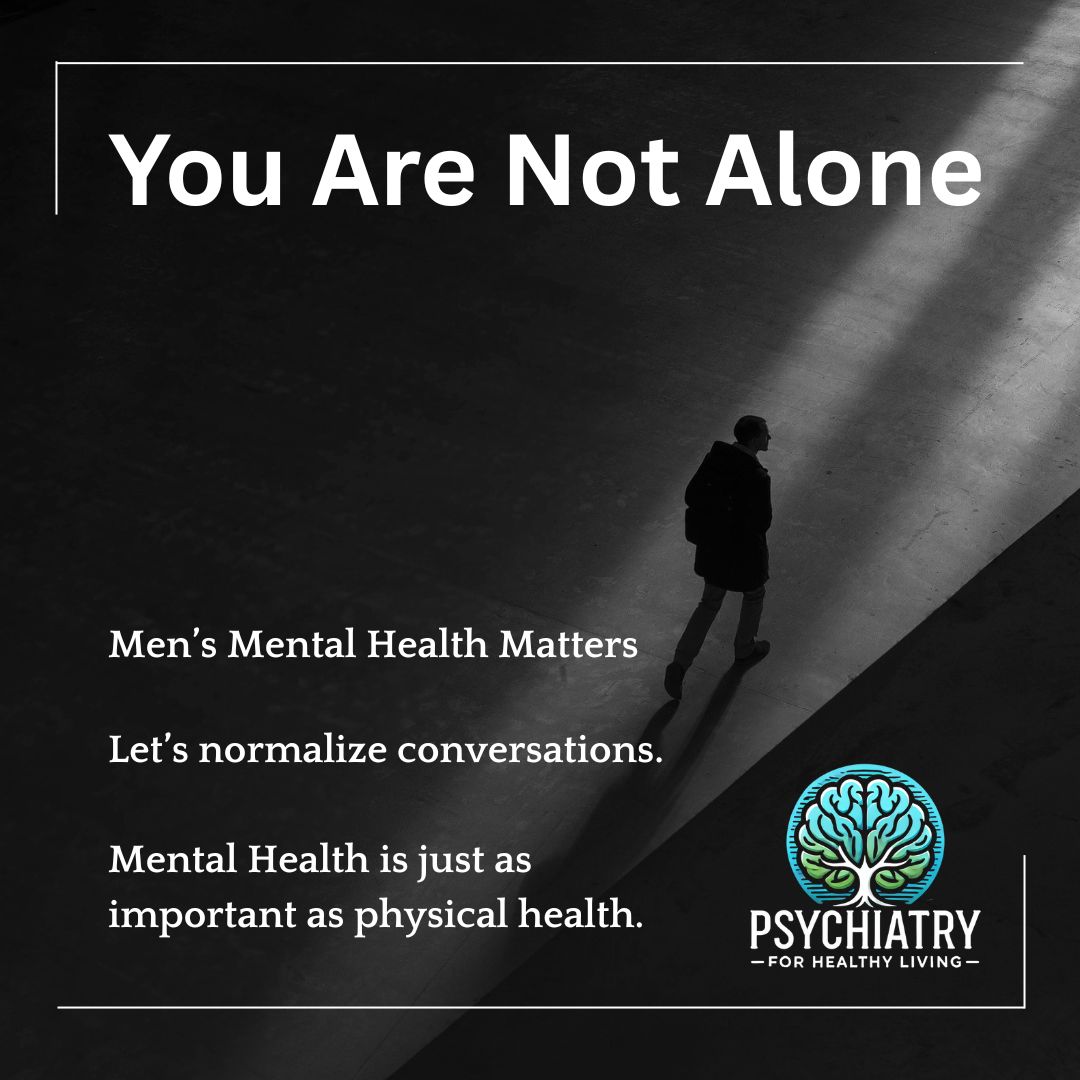
Every June, Men’s Mental Health Month shines a spotlight on a crisis that too often remains in the shadows. While society has made strides in discussing mental health, the reality is that men continue to suffer in silence at alarming rates. The statistics are sobering: 1 in 5 adults in the U.S. experience mental illness, but less than half will seek help from a healthcare professional. For men, the numbers are even more concerning—only about 1 in 4 men with mental health issues reach out for professional support. This reluctance to seek help can have devastating consequences, including a much higher risk of suicide.
The Silent Epidemic
Men are nearly four times more likely to die by suicide than women, accounting for 75-80% of all suicides in the U.S.. Most often, these tragedies are the result of untreated depression or other mental health conditions. In fact, more than 6 million men in the U.S. experience symptoms of depression each year, yet many never receive a diagnosis or treatment. The reasons are complex—deep-rooted stigma, cultural expectations, and the pressure to appear strong and unemotional all play a role.
Recognizing the Signs
Depression in men doesn’t always look like sadness. It can show up as anger, irritability, risk-taking, or substance abuse—symptoms that are easily overlooked or misdiagnosed. Men may also experience sleep disturbances, changes in appetite, lack of concentration, and a decreased interest in work or relationships3. Without intervention, these symptoms can spiral into more serious issues, including addiction and suicidal thoughts.
Why Don’t Men Seek Help?
Despite growing awareness, stigma remains a powerful barrier. Many men fear being perceived as weak or worry about social disapproval if they admit to struggling. Society often expects men to “tough it out” or handle problems alone, leaving them feeling isolated and unsupported. As a result, nearly 60% of adults living with mental illness do not receive treatment, with men being particularly unlikely to ask for help.
The Cost of Silence
The consequences of untreated mental health issues are profound—not just for individuals, but for families and communities. Untreated depression can lead to job loss, relationship breakdowns, substance abuse, and, tragically, suicide. The economic toll is staggering, with serious mental illness costing the U.S. more than $190 billion in lost earnings each year.
How to Support Men’s Mental Health
-
Break the stigma: Talk openly about mental health. Share your own experiences or encourage others to do so.
-
Recognize the signs: Be aware that depression in men may look different than in women.
-
Offer support: Listen without judgment and encourage seeking professional help if needed.
-
Promote healthy outlets: Encourage physical activity, social connection, and self-care.
-
Advocate for change: Support policies and programs that make mental health care more accessible and acceptable for men.
Let’s Move Forward Together
Men’s Mental Health Month is a call to action for everyone. By breaking the silence, challenging harmful stereotypes, and supporting one another, we can help more men get the care they need—and save lives in the process. If you or someone you know is struggling, reach out. Help is available, and asking for it is a sign of strength, not weakness

Comments are closed